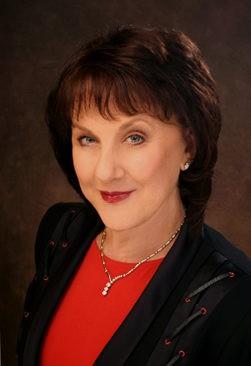- Home
- Play & Learn Home
- Online Enrichment
- Experience Modern Israel
- Israel It's Complicated
- Jewish and Me
- Jewish Holidays Jewish Values
- Jewish Values in Genesis and Jewish Values in Exodus
- Min Ha’aretz
- Our Place in the Universe
- Simply Seder
- The Prophets: Speaking Out for Justice
- Making T'filah Meaningful
- Make, Create, Celebrate
- Yom Haatzmaut Resources
- Hebrew Apps
- About The OLC
- What is the OLC?
- Introduction
- Get Started
- Resources
- OLC Content
- Parent Materials
- See My OLC Classes
- Store
Suzyn Waldman: Telling It Like It Is
"Cry out, do not restrain yourself: Raise your voice like a trumpet."
Isaiah 58:1
Suzyn Waldman knows the New York Yankees. She understands that pitcher Mike Mussina appreciates his pre-game routine. She realizes that shortstop Derek Jeter feels like a fool when he strikes out swinging wildly at a knuckleball. She recognizes when third baseman Alex Rodriguez gets away with a base-running mistake. Suzyn knows her stuff--and that's why people listen to her.
As the Yankees full-time color commentator on New York's WCBS 880 radio, Suzyn is the first woman in major league history to hold that title, and the recipient of many prestigious radio awards. But earning the respect of the male-dominated sports broadcasting world hasn't been easy: Suzyn has received more than her fair share of taunts, curses, and being spat at, for the simple act of speaking the truth about baseball. We caught up with Suzyn between games and spoke about her major league accomplishments.
BABA: Hi, Suzyn. What are your responsibilities as the color commentator for the New York Yankees?
SUZYN: My partner, John Sterling, does the play by play. Then I tell the listeners why it happened, how it happened, and perhaps what could or should have happened. So I explain not just what happens, but why and how.
BABA: What do you like about being a sports broadcaster?
SUZYN: What I love about being a sportscaster is what I've always loved about baseball and sports: the human beings who are in the game. I love imparting insights to people who listen, being the eyes and ears of the people who can't get into the clubhouse to talk to the players, and just making the game more human instead of being all statistics.
BABA: How do you react when people get angry about some of the things that you say?
SUZYN: I believe that you have to tell the truth, and you have to say what you see and what you believe, regardless of what people think. If you satisfy yourself, and you know that you're telling the truth and doing a good job, then it really doesn't matter what anybody else thinks.
BABA: What were some of the challenges associated with becoming the first woman to have your position?
SUZYN: I've been doing this for almost 20 years, and when I started, there weren't any other women doing what I was doing. I sat in the press box for a solid year, and nobody talked to me. But I've always though that if you feel that you have something to contribute, you just keep doing it. You don't let someone prevent you from achieving your goals just because you're not what they're used to seeing.
BABA: What was the most memorable experience of your career?
SUZYN: On October 17, 1989, the third game of the World Series between the San Francisco Giants and the Oakland Athletics was about to begin, and I was sitting in the upper deck at Candlestick Park reporting to radio station WFAN. That's when the earth started to shake. My phone line back to the radio station was the only one in the stadium that did not go off the air, and I just kept talking. That earthquake actually changed my career, because that's when I first started to be taken seriously.
BABA: What is your Jewish background like?
SUZYN: I grew up at Temple Israel in Boston, and I was confirmed and post-confirmed. My brother is an assistant principal at Solomon Schechter in Boston, and I have extended family in Israel. Judaism is a way of life that I wouldn't change for anything. In fact, it's in my contract that I don't broadcast on Rosh Hashanah and Yom Kippur.
BABA: Has your Jewish background influenced the way you approach your career?
SUZYN: Absolutely. I think Jewish people understand what it's like not to fit in, and it gives you a certain strength to know that just because you're different doesn't mean you're wrong and that others are right.
BABA: Thanks, Suzyn!
0


